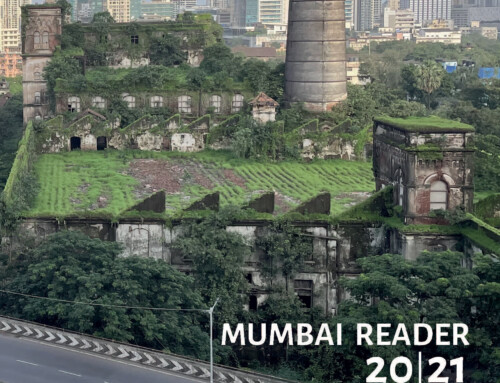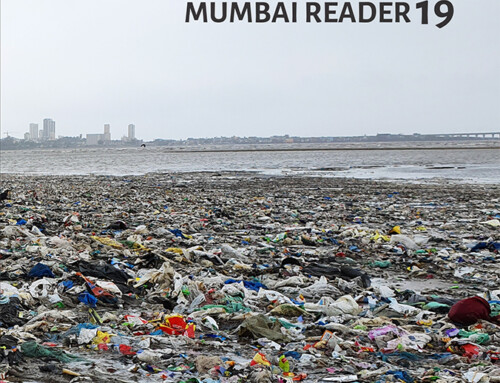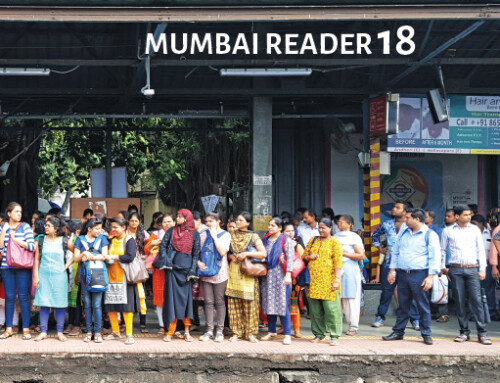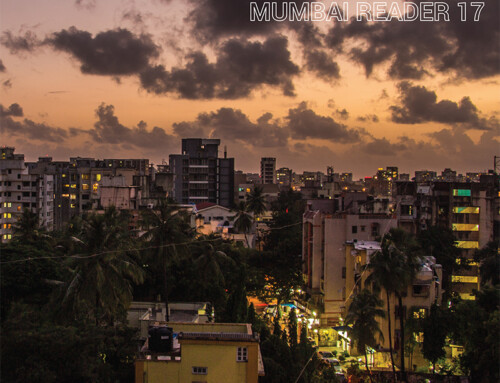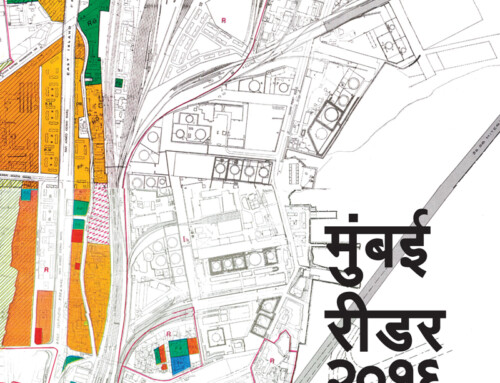Project Description
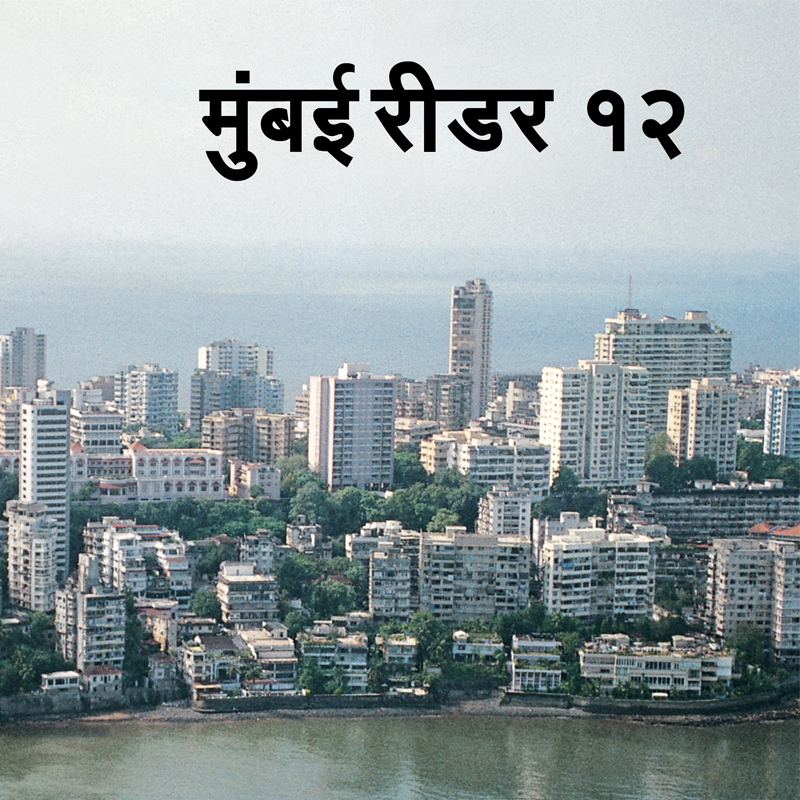
MARATHI MUMBAI READER 2012
Mumbai Reader’12 is available for reference and purchase at UDRI Resource Centre.
PREFACE
The difficulty in representing Mumbai now is that there is always a feeling that such representations may fall into one of the several limitations of reading the city linearly. These limitations of linearity include making gross generalisations, or getting lost in seductive micro-narratives, or constructing incredible scenarios through meticulous empiricisms. While the generalisations strip the complexities of the city from the readings, the micro narratives are often myopic. Similarly, the approaches of using empiricisms are driven by preconceived agendas for problem solving.
Individually, the generalisations, micro narrations and the empiricisms are unable to capture the complexity of Systems, Organisations, and Space in the city. This impossibility of conceptualising the city warrants the need to read the city in multiple ways that simultaneously include an almost palimpsest like reading of all the approaches. To talk about the city then, would be to talk simultaneously in multiple disparate ways, in multiple languages and with multiple perspectives. The Mumbai Reader is an attempt to undertake a representation of the city that enables innumerable readings through a simultaneous and non-linear compilation of multiple voices in the city. The contents include some of the most recent perspectives on culture, economy, geography and history of the city. While it records the routine mainstream labour history and planning discourse types of writings; it also overlaps these with some of the current debates on absurdities that the city is faced with the issues relating to bar-dancers, changing of street names etc. The perspectives include voices from the bureaucracy, civil society organisations, academics, industry, judiciary, media, professionals, artists and many others. The Reader does not claim to be a comprehensive or an exhaustive compilation of readings on the city. It is rather an attempt to provide a glimpse of the complex dynamics of the city of Mumbai. The process of making this compilation was initiated through a call for papers made to a varied set of individuals in order to ensure an array of perspectives that would present to a reader diverse possibility of perceiving the city.
This work is licensed under a Creative Commons Attribution-NonCommercial-NoDerivatives 4.0 International License.
Attribution-NonCommercial-NoDerivs
CC BY-NC-ND
TABLE OF CONTENTS
- The Poetics of FSI
- Mumbai FSI Conundrum: The Perfect Storm
- Dharavi Redevelopment Plan Abuse of legal Provisions+ Increased FSI: Bane or Boon
- Frothing Urbanism- Discussing some Urban Conditions in contemporary India
- End of the line – Living on The edge
- After the crisis, do we still want to make Mumbai a world Finance centre?
- The Medical Emergency of the poor
- Urban Restructuring, Issues and Challenges
- Interventions into the Development Plan: Some Conceptual Notes
- Entry Restricted- Open Public Spaces in Mumbai
- Myths and Realities of Urban Planning
- Politics of Urban space in Mumbai citizens versus the urban working poor
- Issues, Challenges and the Changing Sites of Governance; Self Organising Networks in Mumbai
- Urban renewal and its Implications to Settlement
- Builders Boomers and Fragmentation of Space in Mumbai
- Protecting the Urban Environment
- After the violence: How the Mumbai Riots changed life for Muslims in Chawls
- Recasting Bar dancers: Morality and Rights in Indian Law
- Street Vendors in Mumbai
- Mumbai’s Pedestrian Paradox
- Security Provisions in Slum Resettlement Schemes in Mumbai by- A case study of the Lallabhai Compound Settlement, Mankhurd
- Gendering of the culture of Building case study of Mumbai[EPW]
- Population Change and Economic Restructuring in Mumbai
- Fear of Victimization amongst neighbourhood: A case of Mumbai Metropolis
- Flawed vision
- Mumbai’s Biggest Slum deserves its own Award: Protection as a UN world Heritage Site
- Learning from Dharavi
